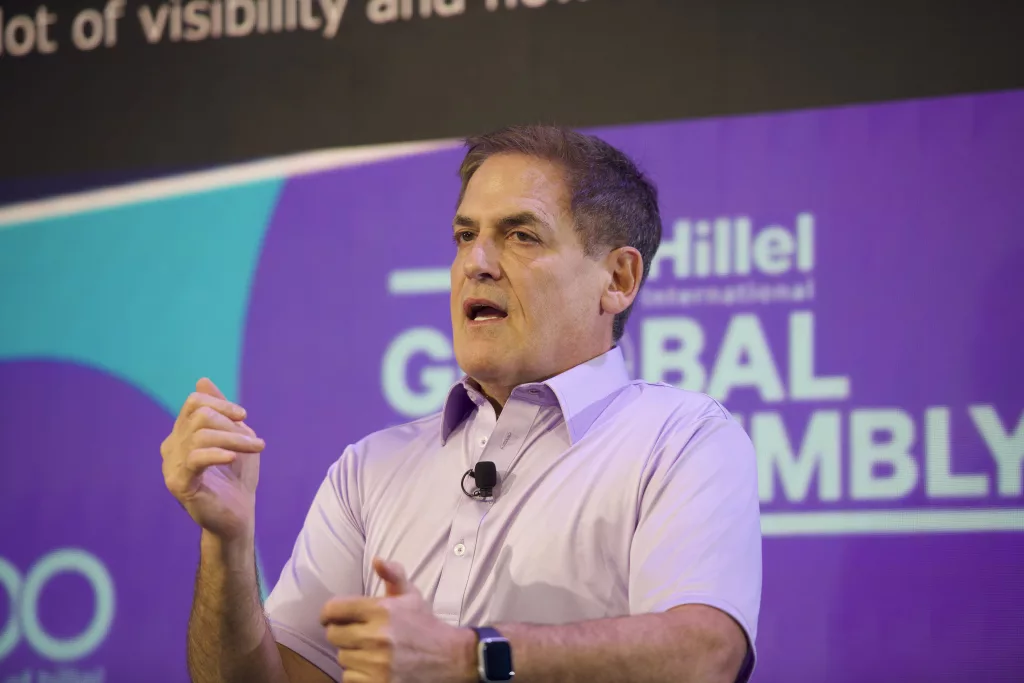Mark Cuban Gets Real About the Future of Jewish Leadership at HIGA 2022

What does it mean to think of Judaism as a brand? That’s the question that Mark Cuban, entrepreneur and Dallas Mavericks owner, put before Hillel supporters and professionals at Hillel International’s Global Assembly 2022 (HIGA) in Dallas.
In a conversation with Adam Lehman, President and CEO of Hillel International, Cuban spoke about his own personal Jewish journey and how it has impacted his identity and relationships. “Growing up in Squirrel Hill, the most Jewish part of Pittsburgh, I didn’t understand what it meant to be Jewish in a world that was mostly not Jewish,” said Cuban.
But when Cuban’s family moved to a different neighborhood in Pittsburgh where he was one of just two Jewish students in his elementary school, the dynamic shifted, and he faced animosity, adversity, and antisemitism. “When a kid tried to beat me up, I didn’t understand why someone would want to beat me up just for being Jewish,” Cuban said. “Of course I kicked his [butt].”
Cuban continued to maintain a strong connection to Judaism through his grandparents as a child, and he fondly recalled eating borscht and other traditional Ashkenazi Jewish food in their kitchen. And as he grew up, Cuban realized that his strongest, most long-lasting connections were with other Jewish people who shared this unique experience with him.
But today, more than 50 years later, Cuban believes that to connect with and activate Gen-Z students as future Jewish leaders, Hillel professionals need to understand how to emphasize the importance of Jewish connections as part of students’ personal brands. In a world where students are searching for in-person connections to complement the global network they can access online, Hillel offers them a community that aligns with their values and aspirations. “That is the beauty of what Hillel is doing — you are helping students form the communities and allegiances that they’re looking for,” said Cuban.
While thinking about Judaism as a brand may seem like a counterintuitive model, Cuban stressed that this framing is a starting point, a place to begin the conversation with a generation for whom this is a familiar and relatable concept.
Cuban also noted that, as we walk together into Hillel’s next 100 years, Hillel professionals will encounter generations who continue to think differently about Judaism and their own relationship to Jewish ideas and identities. Who knows where the future generations of Hillel students and professionals will take us?